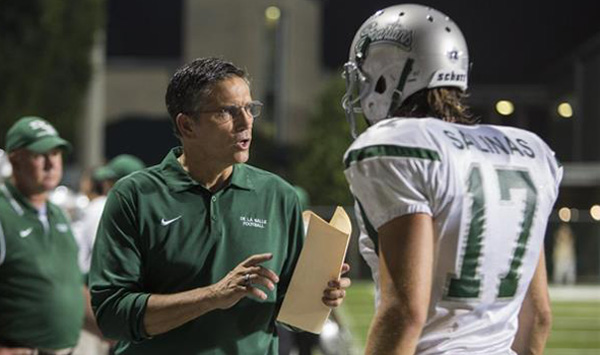 Articles in this section are from the past 6 to 12 months,
Articles in this section are from the past 6 to 12 months,
 Flying upside down is uncomfortable. It’s hard to keep your feet on the rudder pedals, debris falls up (down) toward your face, and you struggle to adjust to your view of your instrument panel even though relatively speaking it is the same. Your eyes strain to the new orientation of the horizon and while all that is going on, the only faith you have not to fall down through the canopy toward the earth is the four strap harness holding your legs and shoulders firmly inside the cockpit.
Flying upside down is uncomfortable. It’s hard to keep your feet on the rudder pedals, debris falls up (down) toward your face, and you struggle to adjust to your view of your instrument panel even though relatively speaking it is the same. Your eyes strain to the new orientation of the horizon and while all that is going on, the only faith you have not to fall down through the canopy toward the earth is the four strap harness holding your legs and shoulders firmly inside the cockpit.
The purpose of taking student pilots up in the air and turning them upside down (among other things) is to give them a view of the new world they are about to operate in. It can be unnerving, confusing, and disorienting, but no less necessary if you want to become a military pilot. Carrying the cross of Christ requires a similar ability - the ability to take what is an old comfortable way to so many, and to turn that world upside down so that they too may get a new perspective on where their spiritual horizon is and the faith required to hold them there.
In Dietrich Bonhoeffer’s book, The Cost of Discipleship, he concluded, “The truth of the matter is that the whole world has already been turned upside down by the work of Jesus Christ.” Bonhoeffer may have drawn from the book of Acts where Luke makes reference to the same idea. In Chapter 17 we find Paul and Silas in Thessalonica where an angry mob from the synagogue of the Jews, after seeing all the conversions of Paul’s preaching, storm out to the house of Jason in hopes of finding them. Since Jason and some of the brethren were all they could find, the Jews dragged them out in front of the city authorities and said, “These men who have turned the world upside down have come here also.”
The Jews in Thessalonica felt their world was being turned upside down without realizing their view had been inverted all along. Turning the world upside down for those who cannot see Jesus is in actuality turning their world right side up, so that their view is now fixed on Him; up in the heavens, seated at the right hand of the Father. The Jews had the right concept; their world was being turned upside down so that they and others could see the Christ they had been looking for all along. Paul and the Apostles used the Gospel to turn the world upside down - we should be no less aerobatic.
And (if) My people, who are called by My name humble themselves and pray, and seek My face and turn from their wicked ways, then I will hear from heaven, will forgive their sin, and will heal their land. II Chronicles 7.14 NASB
First of all, then, I urge men I urge that entreaties and prayers, petitions and thanksgivings, be made on behalf of all men, for kings and all that are in authority, in order that we may lead a tranquil and quiet life in godliness and dignity. I Timothy 2.1-2 NASB
 Let me say, at the beginning of this essay, that I believe in American Exceptionalism. I believe that the democratic experiment begun at the First Continental Congress, and which continues till this day has been uniquely successful. I believe that only one of the passages above applies to this exceptionalism. The other clearly does not apply. This distinction is the point of my argument. I believe that our inability to make this distinction will result in our ceasing to be a distinct people. We will become just so many other voices added to the angry cacophony of denominational protest.
Let me say, at the beginning of this essay, that I believe in American Exceptionalism. I believe that the democratic experiment begun at the First Continental Congress, and which continues till this day has been uniquely successful. I believe that only one of the passages above applies to this exceptionalism. The other clearly does not apply. This distinction is the point of my argument. I believe that our inability to make this distinction will result in our ceasing to be a distinct people. We will become just so many other voices added to the angry cacophony of denominational protest.
The United States Supreme Court will deliver a ruling on Gay Marriage this year, and although I have long ago stopped trying to predict what the Gang of 9 will do, I strongly suspect their decision will light up your twitter accounts, and explode all over your Facebook pages. The Court’s decision will certainly provide Christians with the opportunity of communicating in very un-Christian ways and at un-Christian decibel levels. It promises to be a win/win for Satan – unless we take a breath ahead of time and refuse him his pleasures.
I want to firmly communicate that the first quote above has nothing to do with the United States of America, or any other modern nation state. That Old Testament promise was given to Israel. If it applies to anyone in modern times it applies to Christians. The United States is not called by God’s name, nor is it identified as God’s people. Can we please stop misapplying this passage and others like it? Can we stop expecting God to keep promises He doesn’t make, to be in relationships He never intends?
The second passage explains how our country is exceptional. We are commanded to pray for our rulers. We are to do so that we may “lead a tranquil life in quietness and dignity.” Our nation has fulfilled this prayer as no other has in human history. For this we should thank God. For this we should thank every man and women who works to make this blessing possible. Every service person, every police officer, every first responder, every public servant that provides our “domestic tranquility,” often at great risk, deserves our constant gratitude. We are blessed to live in the United States of America and should say so.
I believe that our democratic experiment has been uniquely successful because of the Christian influence of the First and Second Great Awakenings. Saying that Christianity has had a positive influence is not the same as saying that America is a Christian nation. It isn’t, it will never be, and God has never called us to make it such. The Apostles went out to save souls, not to save the Empire. God has told us that we reside on earth as aliens (I Peter 1.1), and that our citizenship is in Heaven (Philippians 3.20). Paul exercised his full rights as a citizen of Rome to further the gospel, not to reform the Empire. We should follow that example.
I came to this understanding here, at Manassas. Men like Bill Booth, Paul Johnson, and Bill Powers, among others – men who have devoted their lives to serving this nation - have always reminded me that God is in control, that His Kingdom is always victorious, and that whatever happens I should stop hyperventilating. I thank them, and with this essay hope to share the same message with you.
Take your son, your only son , Isaac, whom you love, and go to the land of Moriah, and offer him there as a burnt offering on one of the mountains of which I will tell you. - Genesis 22.2
There are times as a reader that you are shocked by a passage, despite having read it hundreds of times over scores of years. I never cease to be jarred when David “takes” Bathsheba, and then arranges the death of her husband, for instance.
 As you read along in Genesis you wait nine chapters for the child of promise to be born. When Isaac finally arrives, his mother is 90 years old and his dad is 100. So when God, in the very next chapter, tells Abraham to sacrifice Isaac it shocks every time. In the first place human sacrifice is never sanctioned by God. Then there is the way God makes the emotional stress of this command as extreme as possible. He doesn’t just say, “Take Isaac.” He says, “Take your son, your only son, Isaac, whom you love…” Is that really necessary?
As you read along in Genesis you wait nine chapters for the child of promise to be born. When Isaac finally arrives, his mother is 90 years old and his dad is 100. So when God, in the very next chapter, tells Abraham to sacrifice Isaac it shocks every time. In the first place human sacrifice is never sanctioned by God. Then there is the way God makes the emotional stress of this command as extreme as possible. He doesn’t just say, “Take Isaac.” He says, “Take your son, your only son, Isaac, whom you love…” Is that really necessary?
This isn’t all God says, though. He says “take him to a place which I will tell you.” I think this statement is a strong message of reassurance. When God first calls Abraham, He tells him to go to “To the land I will show you,” (Genesis 12.1). When He includes the same detail in Genesis 22 it is a way of saying to Abraham, “I have been with you this far, you can trust Me now.”
God does that – He continually gives us reminders of His presence, and of our special relationship to Him. He spoke from the parted heavens when Jesus was baptized. He spoke thus again on the Mount of Transfiguration, after giving Jesus a measure of His Heavenly Self. He says to Jesus, “I and here, and You are Mine.”
I have had such experiences – times when I thought God was giving me a nudging reminder of His benevolent presence. Once was in seminary. I was depressed, seriously doubting God’s goodness. It was early October – a bleak day that promised rain without delivering it. As I walked down the hill this large flock of starlings was flying in mass synchronization up and down and around the hill. Suddenly they started flying at ground level up the hill, right past me. I could feel the wind of their wing beats all around. After cresting the hill, they flew back down again, whizzing past, an inch away on every side as I stood frozen. It could have been a coincidence, but I felt like I was being told, “I am here, and I am good.”
Once when my oldest daughter was exactly the age her daughter is now I was playing volleyball at a church picnic and had to leave the game to change a diaper. I was not happy because I had just rotated to the front, and there was a deacon across the net from me I was itching to spike the ball on. As I was changing Jessica’s diaper she started singing “Jesus Loves Me.” It was the sweetest thing I had ever heard. There is something about hearing your own child singing that song that makes your faith deeper than ever before. I was being told “I am here, and I love you.”
Once, when I had been occupied with administrative tasks almost exclusively for weeks, I prayed for just a simple act of service that would help someone. “Give me the opportunity to wash feet,” were the exact words I prayed. Later that afternoon I visited a sister who was quite ill. We visited, we prayed, and as I got up to leave she said “Can I ask you a favor? Would you wash my feet and clip my toenails.” “Yes,” I said, “It would be a blessing.” And it was. Is there a greater blessing than having a prayer immediately and undeniably answered? I was being told, “I am here, and I am listening.”
Christina Rossetti once wrote that “Every bush is aflame with God, but only some of us take our shoes off. The rest just pick strawberries.” I am sure God reminds us every day that He is here, He is good, and He is listening. Are we listening?
The Sabbath was made for man, not man for the Sabbath. Mark 2.27
 When Jesus and his disciples are accused of breaking the Sabbath, Jesus can respond to the Pharisees in a variety of ways. He can quote the already rich tradition of the rabbis on the subject and get into a debate about that tradition. He can stick to scripture and demonstrate that technically, rubbing the husks off grain in your palms does not constitute “threshing” and thus does not violate the letter of the Law. But Jesus refuses to engage the Pharisees in this way – ever. Jesus refuses to either invest rabbinic tradition with normative force, or to use the Bible in the way the rabbis used it.
When Jesus and his disciples are accused of breaking the Sabbath, Jesus can respond to the Pharisees in a variety of ways. He can quote the already rich tradition of the rabbis on the subject and get into a debate about that tradition. He can stick to scripture and demonstrate that technically, rubbing the husks off grain in your palms does not constitute “threshing” and thus does not violate the letter of the Law. But Jesus refuses to engage the Pharisees in this way – ever. Jesus refuses to either invest rabbinic tradition with normative force, or to use the Bible in the way the rabbis used it.
What Jesus does is to use God’s law to identify, and to be obedient to God’s will. Reading the original command in Exodus 20.8-11 it is clear that God has given us an example of rest. Since He stopped working for a day and He expects us to stop. He expects us to provide ourselves, our children, our servants, and our animals a day of rest that we would be loath to provide apart from His command. He made the Sabbath for man (and beast). Jesus, in the passage cited above (Mark 2.23-28), provides the Pharisees an example from the Old Testament - David eating the consecrated bread of the Tabernacle - of someone in violation of the letter of the law, but not of the will of God. The Pharisees had make Sabbath keeping a burden, thus, though they respect the letter of the law, are violating the will of God. Jesus’ final point is that since He is the Son of Man (i.e. the Messiah) He is Lord of the Sabbath. Sabbath keeping is determined by the will of God. As God’s Messiah He is uniquely qualified to determine what it is and what it isn’t.
God is changeless (James 1.17). His laws have changed, though. They are age-appropriate. The sacrificial system of the Mosaic Law is completely inappropriate now that Jesus has sacrificed Himself once-for-all. Now we offer ourselves as living sacrifices (Romans 12.1-2). God’s laws are an expression of His will. We can litigate the letter of His laws and get everything wrong, or we can discern the will they communicate and live righteously.
Jesus really expands upon this way of reading scripture in the Sermon on the Mount. “You have heard that it was said, ‘You shall not commit adultery.’ But I say to you that everyone who looks on a woman to lust for her has already committed adultery with her in his heart,” (Matthew 5.27-28). If we see only the letter of the law then we end up arguing whether President Clinton was telling the truth about Miss Lewinski. But if we, like Jesus, use the letter to discern God’s will, we understand that it is wrong for a man to derive sexual pleasure from a woman who is not his wife - whether he uses his eyes, or other body parts.
This is not situation ethics. The way Jesus teaches us to read and apply scripture is all-encompassing. There are no loopholes in it. If we understand God’s law this way then we see no contradiction between His command that the Israelites not mingle with other nations (Deuteronomy 7.3), and His welcoming Rahab, and Ruth into the faith community, and the lineage of Christ. If we understand God’s law this way we see, as Jesus does, that it was right for David to eat the consecrated bread. If we understand God’s law this way there can be no loophole for sin, no rationalization that it is okay to break the spirit of the law because we haven’t broken the letter of it.
Jesus teaches us to read the Bible a certain way. Our alternatives are to extend moral license, or to insist we all be lawyers. I prefer Jesus’ way.
 A few weeks ago, there was a youth group movie night. At the movie night, we watched the movie “When the Game Stands Tall.” There was a quote from the coach which really stood out to me about family. The coach told one of his players who had just lost nearly everyone in his blood family this: “Family isn’t always blood. It’s the people in your life who want you in theirs. The ones who accept you for who you are. The ones who would do anything to see you smile, and who love you no matter what.”
A few weeks ago, there was a youth group movie night. At the movie night, we watched the movie “When the Game Stands Tall.” There was a quote from the coach which really stood out to me about family. The coach told one of his players who had just lost nearly everyone in his blood family this: “Family isn’t always blood. It’s the people in your life who want you in theirs. The ones who accept you for who you are. The ones who would do anything to see you smile, and who love you no matter what.”
Together as a Family in Christ, we are blood relatives, but not in the normal sense. We are united through the blood of Christ, and we need to act towards each other as this quote says. We need to be there for each other as our brothers and sisters need us. When another brother or sister is down, we need to help them stand back up and to get back on the path which they need to be on. 1 Thessalonians 5:11 says: “Therefore encourage one another and build each other up, just as in fact you are doing.” A duty for us, Christians, is to be encouraging and to build each other up as this verse has said.
One of the things included in being a family, is working to help each other and being there for each other. When we do this, we fall as they fall. When a brother or sister is hurting, we hurt too. But that should not stop us from trying to help them. That quote from the movie says, “the ones who would do anything to see you smile,” 1 Corinthians 12:26 and Romans 12:15 explain this thought very well, 1 Corinthians 12:26 says, “If one part suffers, every part suffers with it; if one part is honored, every part rejoices with it.” Paul also writes in Romans 12:15: “Rejoice with those who rejoice; mourn with those who mourn.”
When someone in our family is honored, we all rejoice together, for we are happy for their accomplishments e.g. Anniversaries, Retirements, Promotions, etc. But, when someone is mourning or suffering maybe at the loss of a brother or sister, we should also mourn with them. Families are there for each other, no matter what. No matter the circumstances, we need to be there for each other. Acting in this way, will help to strengthen our bonds with each other and will make our Christian Family stronger. Often times after worship services, we gravitate towards people that we always talk to, close family friends. But I want to encourage us all this Sunday to go up to somebody we don’t know so well, and talk to them. Maybe, just maybe, we will find something cool or new about that person that you never knew before.
In our Family at Manassas, there are a lot of interesting people; there are many things that I wouldn’t have even thought about finding in our congregation. But we will never find out those things, unless we go out of our comfort zone and talk to new people. The more that we talk to new people and make new friends, the stronger our Family in Christ will become.

